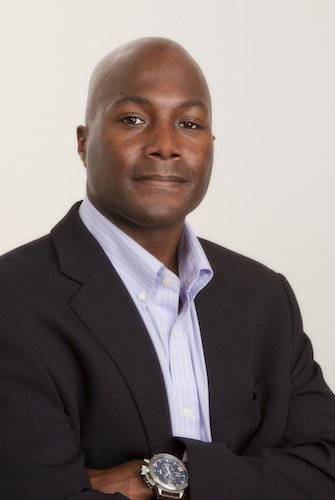Professor Thomas H. Epps, III
Professor Thomas H. Epps, III
Department of Chemical & Biomolecular Engineering
Department of Materials Science & Engineering
Center for Research in Soft matter & Polymers
University of Delaware
Host: Professor Marc Hillmyer
Advancing Sustainability: Small Molecules and Polymers from Biomass and Plastics Waste
From a materials standpoint, advancing polymer sustainability involves the sourcing of materials from renewable feedstocks, along with the harnessing of polymer/plastics waste in the creation of closed-loop frameworks that valorize traditional waste. For the renewables case, lignin is the largest natural source of aromatic carbon on the planet, and thus, lignin-derived products have emerged as critical elements in the next generation of polymers. However, the valorization of lignin to high-performance and cost-competitive materials remains a challenge due to lignin’s perceived recalcitrance, inherent structural variability, and complexity of deconstructed lignin bio-oil mixtures. Recently, we have demonstrated that materials with reproducible thermal and mechanical characteristics can be synthesized in a controlled and predictable manner from batches of monomers with complex and somewhat variable compositions, such as minimally processed bio-oils obtained from deconstructed lignin. As one example, we have combined polymer science and catalysis to generate new, high-performance, pressure-sensitive adhesives from compounds obtained directly from raw biomass (poplar wood) deconstruction with properties, cost, and processing methods that were competitive and compatible with commercial tapes. Additionally, we have developed structure-activity relationships for lignin-derived compounds that were used to design new systems that had drop-in potential in both synthesis and materials properties (relative to petroleum-based analogues), yet most importantly, demonstrated reduced environmental impacts when screened by several common toxicity assays. Finally, we have leveraged these activities to design new catalytic processes that enable scalability towards continuous processes, along with the translation of these lignin deconstruction concepts to the recovery and valorization of macromolecules from polymer/plastics waste.
Professor Epps
Thomas is the Allan & Myra Ferguson Distinguished Professor of Chemical & Biomolecular Engineering at the University of Delaware (UD) with a joint appointment in Materials Science & Engineering. He is Director of the Center for Research in Soft matter & Polymers (CRiSP), Director of the new NSF MRSEC at UD called CHARM (Center for Hybrid, Active, and Responsive Materials) and Deputy Director of the new DOE EFRC at UD called CPI (Center for Plastics Innovation). His research interests include nanostructured assemblies for targeted drug delivery and gene therapy, polymeric materials for bio-separation and ion-conduction membranes, nanostructured soft materials from biobased and plastics waste feedstocks, and polymer films for nanotemplating. He was elected a Fellow of the American Physical Society in 2017, Royal Society of Chemistry (FRSC) in 2018, American Institute for Medical and Biological Engineering in 2021, Polymers Division of the American Chemical Society in 2021, the American Chemical Society in 2021, and the National Academy of Inventors in 2021. Thomas is also co-founder and Chief Scientific Officer of Lignolix, Inc. – a start-up focused on valorization of biomass waste. He has received several honors and awards including: the William W. Grimes Award (AIChE, 2021), Percy L. Julian Award (NOBCChE, 2020); John H. Dillon Medal (APS, 2016); Owens-Corning Early Career Award (AIChE, 2015), among others. Thomas is an associate editor for Science Advances and a member of the DOE Basic Energy Sciences Advisory Committee.
Jeannette Brown Lectureship
The Department of Chemistry established the Jeannette Brown Lectureship to honor the career and legacy of one of its outstanding alumna. This lectureship will bring experts in all fields of chemistry from around the world to the University of Minnesota, with emphasis on highlighting the work and careers of Black, Indigenous, and people of color in the chemical sciences. The lectureship reflects and celebrates the pioneering work of Jeannette Brown as a talented chemist in the pharmaceutical industry for 25 years, author, historian, and tireless leader and advocate for the inclusion and advancement of African American women in chemistry-related professional pursuits and careers.

This lectureship is sponsored by Merck & Co., Inc., Kenilworth, NJ, USA, and by donations to the Jeannette Brown Lectureship Fund. Supporters can go to the Department of Chemistry’s giving page to donate.
Alumna Jeannette Brown
Brown is the first African American to receive a degree from the Department of Chemistry's graduate program, earning her master's degree in 1958. She is a former faculty associate in the Department of Pre-College Programs at the New Jersey Institute of Technology. For 25 years, she worked as a research chemist at Merck. She is the author of two books, "African American Women Chemists" and "African American Women Chemists in the Modern Era." She is a Société de Chimie Industrielle (American Section) Fellow of the Chemical Heritage Foundation (2004), and is a member of the first class of American Chemical Society (ACS) Fellows (2009). For her distinguished service to professionalism, she received the Henry Hill Award from the ACS Division of Professional Relations in 2020. For her work as a mentor to minority students and science education advocacy, she was elected to the Hunter College Hall of Fame in 1991; was honored by the University of Minnesota with an Outstanding Achievement Award in 2005; and received the ACS national award for Encouraging Disadvantaged Students into Careers in the Chemical Sciences in 2005.
